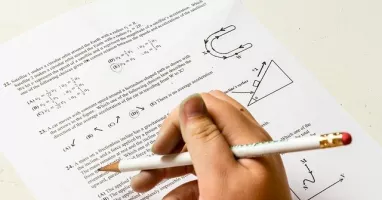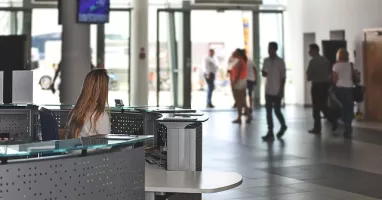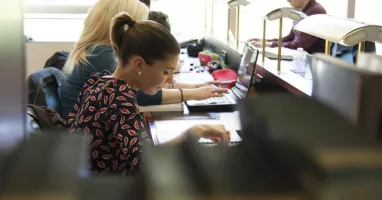The Bachelor of Orthoptic and ophtalmologic assistance has a restricted access.






Publication Notice of Admission
Registration for the Health Professions Admission Test
Admission test
Publication of rankings
Those with a five-year high school diploma or other qualification obtained abroad and recognized as suitable may be admitted to the Bachelor of Orthoptic and ophtalmologic assistance.
Admission to the Bachelor's degree program has a restricted access and involves an entrance exam consisting of a nationally-scheduled multiple-choice test.
Pursuant to Legislative Decree 81/08 and subsequent amendments and additions, each student will undergo an assessment of psycho-physical suitability to carry out the activities of the specific professional profile.
Because the degree course in Orthoptic and ophtalmologic assistance is professionalizing, which means that the final examination also provides qualification for the profession.
The objective, and thus the subjects of study, is to adequately prepare for entry into the world of work.
In addition, during the three-year course, optional activities are also planned to enrich the student's experience, with multidisciplinary contributions aimed at a global approach to patient care or through specialised rehabilitation seminars in specific areas.
In the field of orthoptics, the specific objectives are as follows:
- knowledge of visual sciences: students acquire a sound knowledge of visual sciences, which includes the anatomy and physiology of the eye, ophthalmic optics, ocular pathologies and visual and binocular dysfunctions;
- understanding orthoptic assessment: students learn orthoptic assessment methodologies, which include the use of specialised instruments and techniques to perform accurate visual and orthoptic examinations. This includes assessment of visual acuity, refraction, ocular motility, visual fusion, stereoscopic perception and other visual functions;
- knowledge and understanding of orthoptic therapies: students study orthoptic therapies used for the treatment of visual and binocular dysfunctions;
- knowledge and competence of non-invasive ophthalmological instrumental investigations: students study and acquire the necessary skills for the use of all the biomedical equipment of ophthalmological competence necessary for the study of the anatomy, physiology and function of the visual system;
- communication and interpersonal skills: students develop communication and interpersonal skills to interact effectively with patients.
The training is generally structured sequentially, with a progressive increase in the complexity of the subjects covered and the skills required.
The study course aims to train professionals called Orthoptists or Assistants in Ophthalmology.
These professionals specialise in the diagnosis, assessment and treatment of visual and binocular dysfunctions. They work closely with ophthalmologists and other visual health professionals to provide integrated management of patients.
Orthoptists also play an educational role, providing instruction and support to patients and their families on visual dysfunctions, available treatments and practices at home.
Job opportunities are:
- Ophthalmological practices and clinics
- Specialised hospitals and clinics
- Schools and special education services
- Visual rehabilitation centres
- Paediatric clinics
- Private consultation
Graduates with a degree in Orthoptic and ophtalmologic assistance can enter the Master's Degree Course in Healthcare Rehabilitation Professions, class LM/SNT2.
If you have already attended a university course, you can apply for recognition of your previous career:
- if you would like to change course within the University of Brescia, please consult the Changing Course page
- if you come from another university, please consult the Transferring page
Click here for the procedure for Recognition of previous career.
Language certificates
Language certificates may also be recognised. In the section ‘Knowledge of the English language’ of the Studying page, you can consult the procedures and forms and send them via the Infostudent service, path Students’ career and graduation > Accepted certificates of proficiency in foreign languages.
For further details please contact the course education centre of Orthoptic and ophtalmologic assistance.
